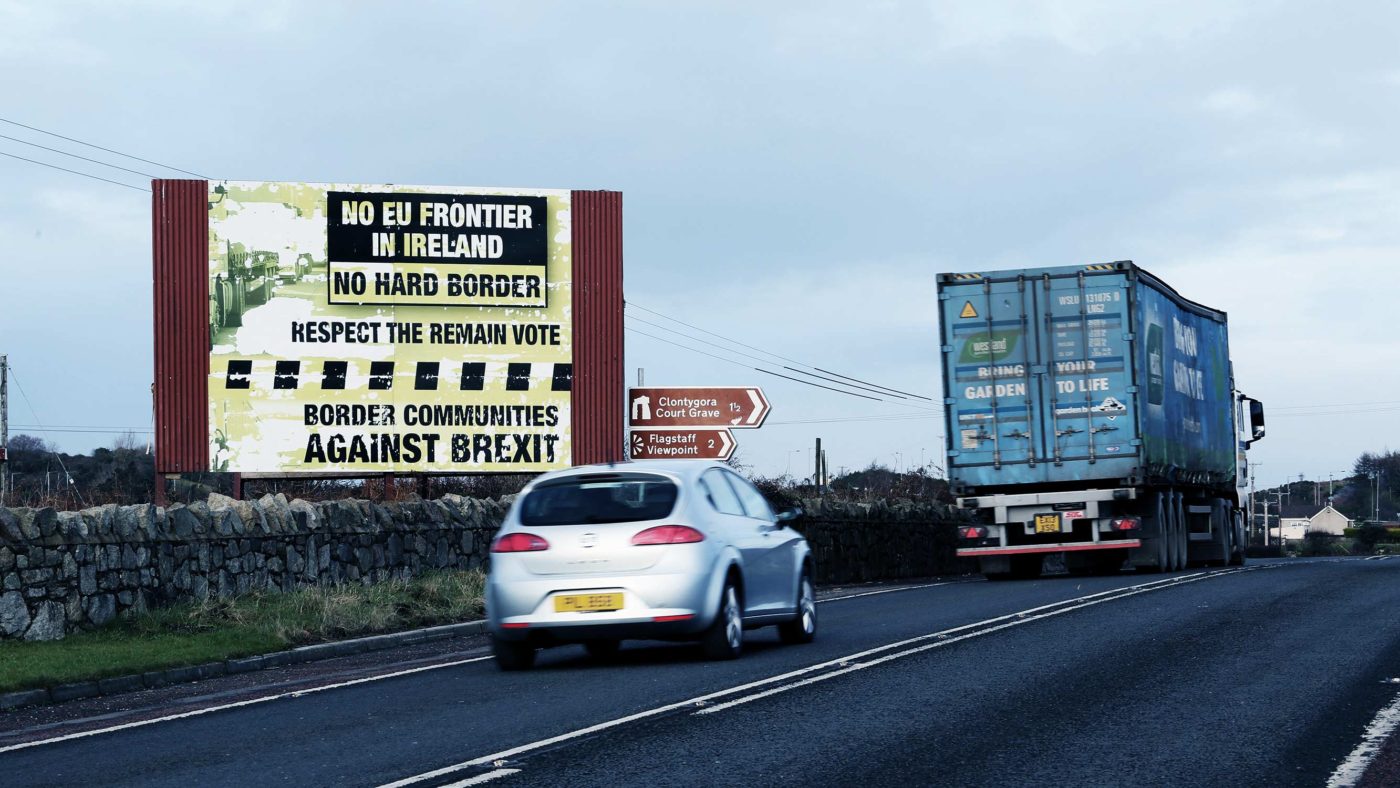It really shouldn’t surprise anyone that the DUP played such a central role in delaying a deal on phase one of the Brexit negotiations last week by insisting on changes to the text.
The routine of prolonging talks, crashing deadlines and, eventually, agreeing a form of words that avoids solving your trickiest problems, is how politics works in Northern Ireland. And the section of the “joint report” that tackles the border is a classic product of the type of talks in which Northern Ireland’s parties specialise.
It’s a triumph of slippery draftsmanship that allows the UK, the Republic of Ireland and the EU’s negotiating team to each claim that they’ve made progress on realising their Brexit objectives.
Already, we’ve seen evidence that the main players interpret the document very differently.
The Irish prime minister, Leo Varadkar, believes he has secured a binding guarantee that Britain will ensure “regulatory alignment” between Northern Ireland and the Republic. The Brexit Secretary, David Davis, claims that the agreement is simply a “statement of intent” and the British government emphasises the agreed principle that “nothing is agreed until everything is agreed”.
Some Remainers and Irish commentators argue that the deal will inevitably tie the UK as a whole to single market and customs union rules, in other words delivering a soft Brexit. Some doubt has been thrown om this conclusion by the Commission’s chief negotiator, Michel Barnier, who said that, in his understanding, “alignment” is likely to apply only on the island of Ireland.
In order to reassure Dublin that Brexit will not result in a hard border, the UK has taken on a sequence of three-tiered commitments. In the first instance, Britain hopes that a trade deal can be struck that avoids the need for customs checks and other infrastructure, but if this isn’t possible the government must then propose “agreed solutions” for the border.
Paragraph 49 of the text determines that if neither a trade deal nor “agreed solutions” are forthcoming, the UK will maintain “full alignment” with EU rules, where “North-South cooperation”, “the all-island economy” or the Good Friday Agreement might be affected. This formulation is designed to satisfy both the Irish government’s demand for a soft border and the DUP’s red-line that Northern Ireland should not be treated differently to the rest of the UK.
This appears to be a broader commitment than the document reportedly contained in its earlier drafts. Previously, “alignment” appeared to apply only across a limited number of areas specified by the Good Friday accord. There was a focus on specialist sectors like agriculture and energy, for which cross-border arrangements are particularly difficult to untangle. Though it could be argued that any form of trade affects the “all-island economy”.
Whether or not the document is binding legally, there will clearly be serious moral and political pressure to stick to its clearer principles, particularly when it comes to the Irish border. If it restricts the UK’s freedom of action in the negotiations to come, the implications for the type of Brexit we eventually see could be far-reaching.
The report demonstrates a degree of pragmatism and a determination from both the EU and the UK to reach a deal. That bodes well for trade talks. However, some of its content could be seen as an incentive for Brussels or the Irish government to show intransigence in the next stage of negotiations.
If the UK has agreed that it will default to a softer form of Brexit, remaining closely linked to the single market and the customs union, why would the EU go out of its way to accommodate British desires for a unique arrangement? Where would that put the Brexit Secretary’s ambitions to craft a different, looser deal, based on an enhanced version of Canada’s free trade agreement?
In Ireland, the Dublin government’s nationalist impulse is that Northern Ireland cannot be allowed to just leave the EU with the rest of the UK. There’s always been a strong lobby, even among unionists, that believes the best way to keep a cordial relationship with the Irish is to accept that Britain must maintain something close to the status quo. Indeed, the government has bought into the logic of that argument by offering an open-ended promise that a hard border won’t happen, rather than simply stating that it isn’t desirable.
For Remainers, and even for some less ideological Brexiters, the idea that the UK may find itself compelled to have a closer relationship with the EU has undoubted appeal. The best arguments to stay in the Union always focused on the potential difficulties, complications and disruptions of leaving, rather than the merits of its institutions or its wider political mission.
Perhaps the simplest means of making these problems go away is to be nudged and cajoled gradually into remaining closely aligned with Brussels’ market and its rules.
More bullish proponents of an unfettered, free-trading Global Britain won’t be persuaded that Brexit should be allowed to evolve like this into something more consensual. They’ll be deeply angry if a slice of Irish fudge restricts the UK’s ability to determine its future relationship with the EU, in phase two of the negotiations.


